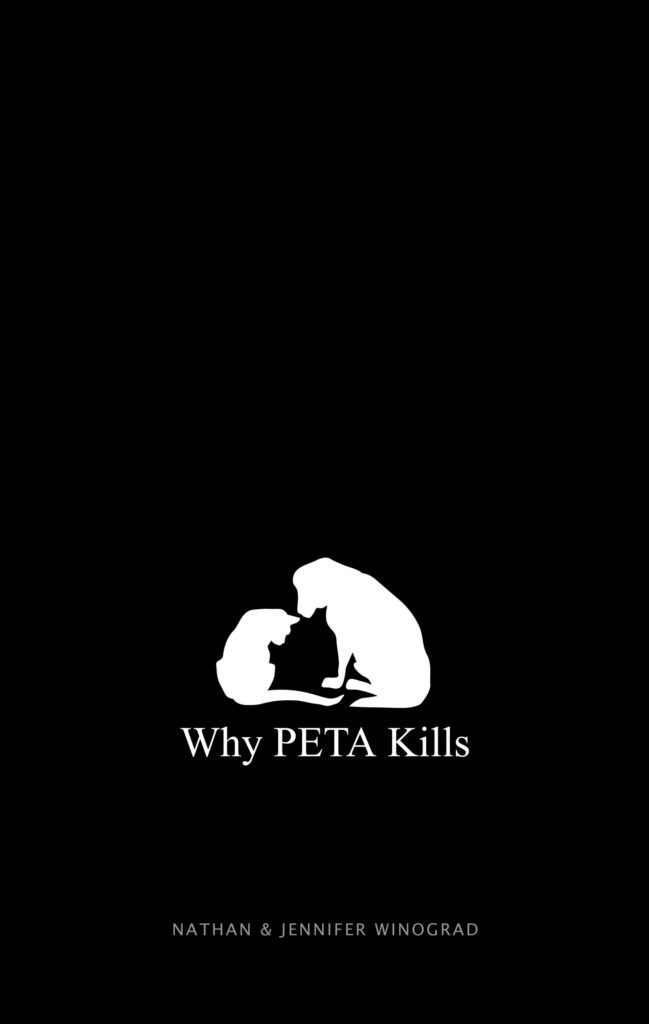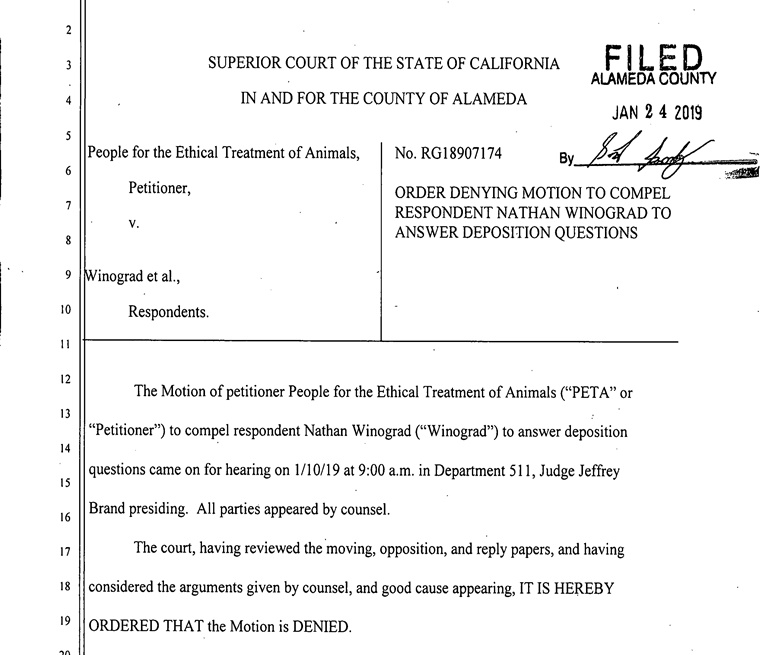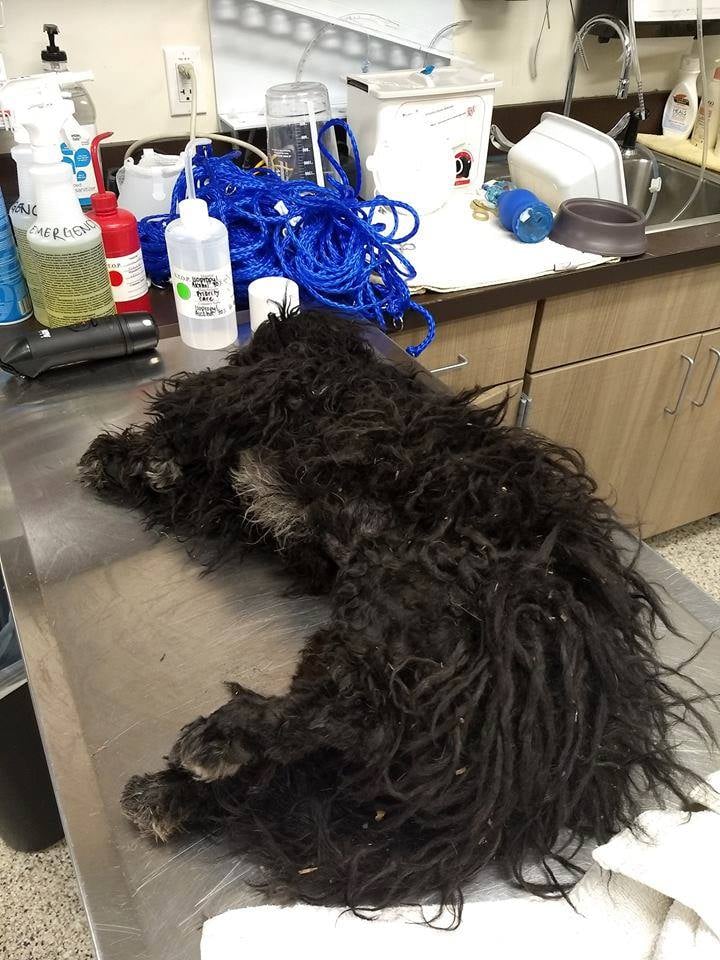
Today is the anniversary of PETA’s killing of Maya. On October 18, 2014, two PETA representatives backed their van up to a home in Parksley, VA, and threw biscuits to Maya, who was sitting on her porch. They were hoping to coax her off her property and give PETA the ability to claim she was a stray dog “at large” whom they could therefore legally impound.
Maya refused to stay off the property and after grabbing the biscuit, ran back to the safety of her porch. One of the PETA representatives went onto the property and took Maya. Within hours, Maya was dead, illegally killed with a lethal dose of poison.
Why PETA Kills, my book, tells the story of Maya and over 40,000 others like her who have died at the hands of PETA. The e-book version is available for free today. (Please note: You don’t need a Kindle or Kindle Unlimited to read it if you click below Kindle Unlimited where it says “$0.00 to buy”; but you do have to first download the free Kindle reading app.)

It is based on exhaustive research, including records acquired from civil and criminal court cases, documents received under the Public Records Act, testimony by PETA staff members, and confidential informants. It is the book that PETA does not want you to read.
Following the release of this book, PETA filed a run-of-the-mill defamation lawsuit against several critics of their killing in Virginia. The named defendants were not the actual targets. Instead, the lawsuit alleged various “co-conspirators” they claimed were involved in criticizing PETA, but who were not being sued as named defendants, including the No Kill Advocacy Center, my organization, and me. The reason PETA listed me and the No Kill Advocacy Center as “co-conspirators” rather than defendants is because they were scared of us.
Suing me would be dangerous for PETA. Not only would it allow me to force the deposition (e.g., testimony under penalty of perjury) of Ingrid Newkirk, the architect of PETA’s killing, as well as the others at PETA who do the actual killing, but it would allow me to seek documents from PETA that would augment what public records and the PETA employees I spoke with already reveal: that PETA intentionally seeks out animals to kill and that the majority of those animals are healthy and adoptable. Absent a court case, as a private organization, PETA is not required to release that information under state freedom of information laws and has ignored my requests to do so. They also know I would neither settle such a case, nor agree to a dismissal. In other words, suing me directly would prove their “guilt.”
Instead, being named in the complaint, but not as a defendant, gave PETA the ability to issue a subpoena in order to (try to) seek the names of my informants at PETA who genuinely fear retribution. I refused, citing my First Amendment rights as a journalist to protect my sources, under both the California Constitution and Federal law. In an attempt to force me to do so, PETA filed a motion in court to compel the disclosure of the names, claiming that as an animal advocate, I was not entitled to the protection of the First Amendment, a point of view they hypocritically reject for themselves and which, the Reporters Committee for Freedom of the Press, the organization founded by legendary Washington Post editor Ben Bradlee of Pentagon Papers fame to protect the rights of journalists, called “alarming.”
In assisting me with my legal defense, the Reporters Committee noted,
We’re concerned about the legal efforts to require Nathan Winograd to reveal the confidential sources for his reporting on PETA’s practices. Both the First Amendment and California’s constitution protect those who engage in journalistic activity: and any efforts to limit these protections should be alarming for all newsgatherers.
Threatened with a fine and jail time if I refused to reveal my sources, my lawyer argued that California Courts have consistently ruled that the First Amendment protects “investigative reporting.” And investigative reporting includes “authors such as Lincoln Steffens and Upton Sinclair[, who] exposed widespread corruption and abuse in American life. More recently, social critics such as Rachel Carson, Ralph Nader, Jessica Mitford, and others have written books that have made significant contributions to the public discourse on major issues confronting the American people.”
As my attorney argued,
Every crusading journalist in that pantheon of heroes cited by the court would have flunked PETA’s putative ‘journalism’ test, for their journalism was inseparable from their advocacy. Indeed, Sinclair and Nader took their advocacy onto the campaign trail and sought public office. Winograd and NKAC’s intertwined investigative and advocacy work are no different from that done by Nader and his nonprofit Public Citizen.
The court agreed. Despite PETA’s hiring of one of the most expensive law firms in the country who tried to argue otherwise, the Court denied PETA’s motion, not only providing the animals and me an important victory, but breaking new ground by extending First Amendment protections to new/non-traditional media, such as bloggers.

Following that ruling, another whistleblower from inside PETA openly came forward and confirmed what I wrote in this book: that PETA staff lie to people in order to acquire their animals to kill, kill despite life-saving alternatives, and indoctrinate people to kill in a cult-like atmosphere she described as “terrifying.”
[A]s most new PETA employees are blooming animal rights activists, freshly plucked from college and determined to do whatever it takes to succeed in this demanding, low-paying activist world, PETA’s methodology of indoctrination is quite successful. These employees soak it all in like a sponge, as I did at the age of 21 when I started there, and begin to spout the organization’s soundbites at every turn. They will start to do so so naturally that they can’t see where they themselves end and the organization begins.
“Ultimately,” wrote Laura Lee Cascada, a PETA field worker whose job included rounding up animals to kill, “the culture was terrifying and desensitizing-Š—-Šand I gradually felt that my view of death, of taking animals’ lives, was being warped, my emotions being stripped away.”
Like Heather Harper-Troje, another whistle-blower from inside PETA, before her, Cascada’s chilling account describes the method whereby employees are intimidated and emotionally manipulated into participating in the killing of animals, an act that came to be euphemistically called to “take care of” an animal (the words “killing” and even “euthanasia” are not used). Employees “were forced to participate in euthanasias they didn’t believe in” or “were fired because they refused to do so.”
[I]f an employee, like many animal rights advocates who believe in the rights and autonomy of each individual animal, wanted to critically assess whether a euthanasia decision was truly the best thing for an individual animal in his or her unique circumstances, there was a real, true fear of being branded as an advocate for hoarding or a secret supporter of the enemy. Thus, speaking up could have meant being booted from the tribe.
Cascada also describes numerous examples of healthy animals who were killed for the “good of all animals.” Such animals included a happy and healthy dog her mother wanted to adopt, and a bird for whom she had personally cared for for many weeks but was ordered killed when the bird’s mate died:
I rescued and cared for a pair of birds from a cruelty case for weeks, bonding with and growing to love them. When the decision was made to euthanize the boy because of a debilitating medical condition, the girl was also euthanized because it was thought that she would be lonely without him. She was one of those lumped into the ‘unadoptable’ category PETA brushes past as it explains its euthanasia statistics each year. I was expected and required to swallow my emotions for her for the good of all animals. I was expected to welcome her death as a positive outcome in order to maintain my employment.
Another time, I rescued an unloved dog whose body condition and personality were unremarkable, meaning there was no immediate indication for euthanasia. I quickly heard from my mom that she’d be interested in adopting him. I excitedly emailed the manager of the shelter to make this offer but never received a reply. A few days later, I checked in with her and was told that he had already been killed.
She recounts getting chastised for trying to find homes for cats through rescue groups and to lie to people to acquire those animals. For example, Cascada writes that she,
[R]esponded to a call from a concerned woman who’d found an abandoned days-old kitten under her porch. When I came to pick up the kitten, I had her sign a generic give-up form that spelled out that euthanasia was a possibility. But I was instructed to repeatedly convey that we would do our absolute best, and so that’s what I said, even as the woman described her careful search for an organization she knew would work around the clock to help this tiny being pull through. It was my job to make sure I did not leave without that cat-Š—-Šthat I said whatever necessary for the woman not to change her mind.
The entire way back to PETA’s Norfolk, Virginia, headquarters, I sobbed, petting the infant cat in my lap, telling her things would all be OK, even though in my gut I knew it wouldn’t, that she never really had a chance. I even began plotting out how I might take a detour and deliver her to a rehabber instead. But how could I explain a missing kitten to the woman waiting with the needle? I couldn’t, so I complied without a word.
As a result of coming forward, she reports that she was “contacted by individuals from all over the country expressing their gratitude, and their own fear, about speaking out about their experiences. People who worked at PETA and were forced to lie about euthanasias, people who were forced to euthanize animals they loved as a condition of their employment, and people who were told by leadership that they were worthless. There are dozens, and maybe hundreds, of us. Most are still afraid to break their silence.”
PETA’s lawsuit would ultimately collapse. When two of the named defendants filed a motion with the court to compel PETA to provide information about their killing under oath and penalty of perjury, PETA, as predicted, cut and run rather than allowing those responsible for killing animals to testify. In the end, PETA achieved nothing before it dismissed the lawsuit after spending tens of thousands of dollars of donor funds on attorneys.
But four important things came out of the victory against PETA. First, it extended First Amendment protections for investigative journalism to animal rights bloggers and other new media. Second, it demonstrated that PETA may have deep pockets and will misuse the court system in an attempt to intimidate people into silence, but their strategy will always be limited by the fact that depositions and the witness stand could compel employees, including Newkirk, to testify under oath. Consistent with overwhelming evidence already available, such testimony would likely be damning, and PETA knows it. If people stand up to PETA’s donor-funded intimidation tactics, rather than cower to them, PETA will invariably back down. Third, their empty saber rattling may have led to another whistleblower openly coming forward. Fourth and finally, it led my family to a dog named Ralph.

As fate would have it, on the way to court in the case, my wife and I found a little dog who had been hit by a car, bleeding in the gutter. Wrapping him in Jennifer’s coat, we rushed him to the nearest emergency veterinary hospital where he was given the care he needed, including pain medication. After recovering from his injuries in our care, we found him a loving, new home, consistent with our belief in the ethical treatment of animals. Were it not for PETA’s meritless lawsuit, we would never have found him.

For obvious reasons, we are grateful that it was us and not PETA representatives who saw him laying in a pool of his own blood on the way to the courthouse. If PETA had gotten to him and history is any guide, Ralph would no longer be alive, put to death by one of the obedient members of “the tribe” with a lethal dose of poison for the “good of all animals.”
————-
Have a comment? Join the discussion by clicking here.